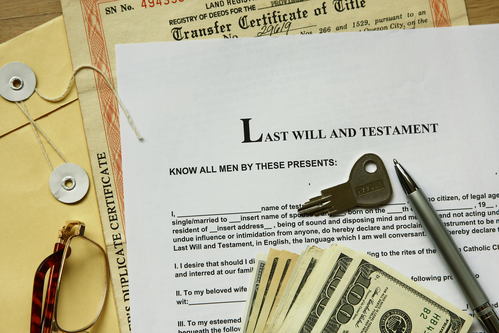How to Sell Your Property in Probate
 Selling a property during probate can be a challenge. It is a somewhat intricate process, which has had a negative impact on many relationships between relatives. Notwithstanding, when approached correctly, learning how to sell your property in probate is achievable.
Selling a property during probate can be a challenge. It is a somewhat intricate process, which has had a negative impact on many relationships between relatives. Notwithstanding, when approached correctly, learning how to sell your property in probate is achievable.
When the owner of a property passes away, a probate court is used to sell the estate. If no heir has been assigned, the court seizes the home and assigns it to the closest family member, who becomes the administrator/executor for the sale. Once the sale has been fully processed, the probate court arranges the division of funds between the appropriate parties. Below is a summary of the procedure for probate sales. Bear in mind that different states have different regulations however.
Allocation of an Administrator/Executor
If the previous owner allocated an administrator/executor in his or her will, and that person agrees to be the administrator/executor, they will perform the task. The closest family member will serve as the administrator/executor, in the event that no one has been assigned to the role. Either the court or another relative decides who should be chosen to do this.
Selling the Home
An appraisal is carried out on the home initially. A real estate solutions firm can point you in the direction of a reputable appraiser. The selling price of the property has to be ninety percent or more of its’ appraised price.
The home is listed for sale and promoted to potential buyers. It can be listed on the various real estate portals as well, like Zillow. A real estate solutions firm can arrange this for you. It will be stated in the listing that the home is a probate property.
Buyers must include a deposit of ten percent with the offer they make, which can be turned down by the seller. The court has to approve the offer, and the seller makes no commitment to the buyer — irrespective of whether they accept the offer. The estate representative will request court approval for the sale, through their probate solicitor. After all parties reach an agreement, a court date is determined for the processing of the sale.
When the seller accepts an offer for the home, a Proposed Action Alert is given to each heir — explaining the details of the sale. The heirs have just over a fortnight to read this information, and make any concerns they have known. If no concerns are raised, the sale proceeds without any court hearing.
How Overbidding Works
The judge will ask the other court attendees whether they want to bid on the property, before approving the original buyer’s offer. If another person does bid, the amount must be $500 plus five percent above the original buyer’s offer. Furthermore, additional bids can be made to the judge, until the biggest bid available has been declared at the hearing. Should a different buyer win the bid, the original buyer gets their ten percent returned to them.
Once the overbid is accepted, the buyer has to write a cashier’s check for a ten percent deposit. At the hearing, this check is passed to the administrator/executor. After this, an agreement with no contingencies is signed. Normally, following the hearing, Escrow closes after fifteen days.
No matter your situation, foreclosure, probate, bankruptcy, or just want to sell your house fast for the best price, in any condition in Long Island NY, New York or any location we buy houses – contact us today! We help homeowners just like you sell your house fast for the best price in as little as 7 days. Call us at 877-543-7171 or visit us at SellYourHomeFastNY.com